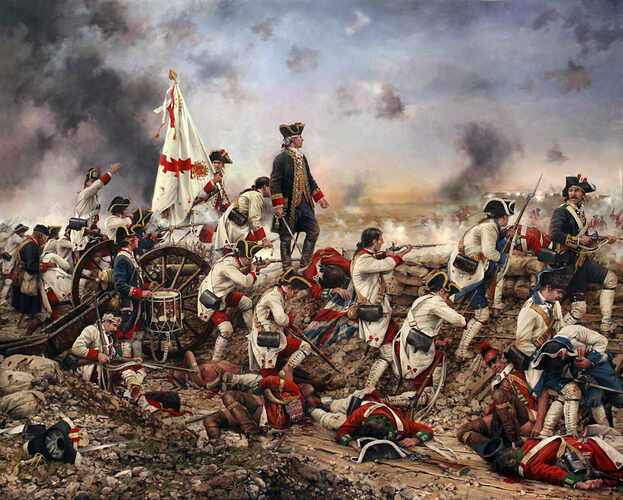Name: the name is very generic. Now we do have other mercenaries with generic names like the harquebusier, but its introduction and look clearly refers to English civil war parliamentarian horseman. “Mounted rifleman” is chasseur-a-cheval and “royal horseman” is garde-du-corps. But the fusilier’s introduction is also very generic.
Uniform: very hard to distinguish. It looks Napoleonic-ish, but I don’t know if there is an actual actual all-black infantry uniform with a bicorne. In fact I feel it looks more like a cavalry uniform, or one of an officer.
Weapon: line infantry with rapier not bayonet is kinda rare, almost exclusive to Swedes. The unit spoke Swedish in TWC and wiki says it is the remnant of the scrapped Swedes civ. However, the uniform still does not look Swedish to me.
Now it is “transferred” to French and becomes even more generic (in France fusilier just means line infantry). The uniform is not French either and I don’t think French line infantry are famous for using rapiers.
Any hints?
1 Like
A dutch source for the word fusilier:
Fuselier
Van het Franse ‘fusilier’ (scherpschutter). Deze functie is ontstaan aan het eind van de zeventiende eeuw. Een fuselier was een soldaat (geweerschutter), genoemd naar zijn wapen (fusil), een vuursteenslotmusket. Oorspronkelijk waren fuseliers keursoldaten, die gedetacheerd werden bij de artillerie om deze te ondersteunen. Later vormden zij aparte regimenten binnen de infanterie. Aan het einde van de achttiende eeuw werd de benaming gebruikt voor elke infanterist, die niet tot een keurcompagnie behoorde.
Translation:
Fuselier
From French ‘fusilier’ (sharpshooter). This function has come in existence at the end of the seventeenth century. A fusilier was a soldier (rifle shooter), called after its weapon (the fusil), a firestone-lock-musket.
Originally the fusiliers were handpicked elite soldiers, who were detached with the artillery to support them.
Later htey formed independent regiments inside the infantry. At the end of the 18th century the name became used for every infantrist, which did not belong to an elite regiment.
Source: Oude militaire rangen en functies | Uit de oude Koektrommel
Now that’s the exact reason why I’m confused: the unit has a Napoleonic uniform. At that time “fusilier” just means line infantry, but the unit functions differently from other line infantry (it uses a rapier and marches very fast).
The same happens with Soldado…
Also I keep waiting for translation errors fixing
The Soldado has the Spanish uniform. I suppose he is referring to the Spanish troops.
The thing is that muskets, skirmishers, halberdiers, pikes, bows, xbows…any infantry are soldados
That name can work in English, but is awful in Spanish, same with USA militares
Well, and then we have Hacienda for every coin farm and Corral for both, Hauds stable and the livestock pen
1 Like
Could be to difference they from the rest of mexican troops that are majority irregular troops and not soldiers
You don’t need to think too much about this: as you said in your post, this is primarily a refurbished version of the swedish mercenary introduced in TWC, which was not very inspired at the time. It used a rapier as a tribute to the carolean but its uniform was blah.
One important notion is that the french word for the flintlock musket is “fusil à silex”. It means that in french, the basic weapon of the 18th century is called the fusil and not a ''mousquet", which refers to older weapons. We, the french, don’t use the musketeer cognate word (" Mousquetaire") in the 18th century, but rather infanterie de ligne or fusilier. As a results, fusiliers are not sharpshooters but basic line infantery.
I believe they made the unit french because of its name. The looks of this unit remind me of the french infantery during the revolution war, which wore bicorn hat. One funny thing is that napoleonic infantery had an important characteristics : They were ultra fast when moving, because of the light structure of the napoleonic army (with the army corps).
1 Like
